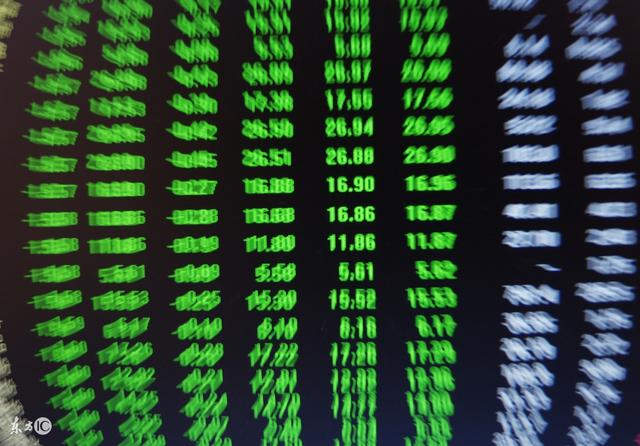Why is the day after Thanksgiving called ‘Black Friday’?感恩節後的那天爲什麽叫作“黑色星期五(Black Friday)”?
大家可以選擇一邊聽小編的朗讀,一邊閱讀文章內容:
Often referred to as Black Friday in the US, the Friday after Thanksgiving marks the start of the Christmas and holiday shopping season, during which crowds of consumers are drawn to retailers offering special deals.
在美國,感恩節後的第一個星期五常被叫作“黑色星期五”,這一天標志著聖誕節和假日購物季的開端,成群結隊的顧客會被各大零售商的特價商品所吸引。
According to the Oxford English Dictionary (OED), the day after Thanksgiving has been called Black Friday since at least the early 1960s. The explanation typically given for the day’s name is that it is the first day of the year that retailers are in the black as opposed to being in the red. In other words, the day is the first of the year that retailers have turned a profit. The use of colors here refers back to the bookkeeping practice of recording the credit side of an account in a ledger in black ink and the debit side in red ink. Thanks to the volume of sales on Black Friday, retailers are – notionally at least – in the black after the holiday shopping rush.
根據《牛津英語詞典》的記載,自從二十世紀六十年代早期以來,感恩節後的那天就一直被稱作“黑色星期五”。對此,比較常見的解釋是:這一天是零售商們一年當中第一天財務報表上是黑色的,而不是相反的紅色。換句話說,這一天,是零售商們一年當中第一天盈利的日子。這裏的顔色是指財務上的記賬的方式,黑色代表盈利,紅色代表虧損。由于黑色星期五這天的銷售量很大,零售商們在購物季結束之後都是盈利的——至少理論上是這樣的。
However, the black ink explanation is probably not the origin of the term. The more likely story is that ‘Black Friday’ started out as a joking reference to how bad the traffic would be on this day. Due to the influx of enthusiastic shoppers into city centers, the congestion was the worst that it would be all year. Early citations in the OED indicate that the term may have originated among police officers and bus drivers, who no doubt would have dreaded this traffic-heavy day. The use of this term seems to have started in Philadelphia, Pennsylvania, before spreading to other areas of the country. In this instance of ‘Black Friday,’ the word ‘black’ refers to a situation that is “characterized by tragic or disastrous events” or “causing despair or pessimism,” although the use is understood as being humorous.
然而,財務上用黑色代表盈利的這種解釋,很可能不是“黑色星期五”一詞的真正來源。更爲可能的來源是:“黑色星期五”一開始是被用作玩笑話,用來代指感恩節後的那天交通狀況會極爲糟糕。因爲當天有大量狂熱的顧客湧入市中心,所以路上的擁堵就成了一年當中最爲嚴重的了。《牛津英語詞典》早期的引文表明,“黑色星期五”可能是在警察和公交司機當中傳播開來的,因爲他們無疑是很害怕交通如此堵塞的那一天的。這個詞語的使用好像是從賓夕法尼亞的費城開始的,然後就傳播到美國的其他地方去了。在這個“黑色星期五”的緣起事例中,“黑色”一詞是指“有悲劇性或災難性事件發生的場合”,或者“會導致絕望或悲觀情緒的情況”,盡管該詞語的使用是被理解爲一種诙諧的說法。
Historically, Black Fridays have not been appended to positive events. For instance, there have been other Black Fridays besides the one referencing holiday shopping. The other Black Friday defined in OxfordDictionaries.com refers to Friday, September 24, 1869, when several speculators attempted to corner the US gold market. President Ulysses S. Grant responded by releasing all government-held gold for sale, thereby causing the price of gold to plummet and creating a stock market panic. Similarly, the day that share prices collapsed on Tuesday, October 29, 1929, ultimately causing the Great Depression, is referred to as Black Tuesday.
在曆史上,黑色星期五從來與好事無關,說的都是壞事情。比如說,黑色星期五除了用來指代購物季的交通擁堵之外,還有其他的說法。牛津詞典網站裏對黑色星期五的解釋中就有這樣的版本,指的是1869年9月24日星期五這天,幾個投機商試圖壟斷美國的黃金市場,而時任美國總統尤利塞斯·格蘭特采取的應對方案是:把政府持有的所有黃金投放到市場上,從而導致了黃金價格的暴跌,進而引發了證券市場的恐慌。同樣地,1929年10月29日星期二這天,股票價格崩塌,最終導致了經濟大蕭條,而這一天就被稱作“黑色星期二”。
Black Friday is not the only day of the consumer shopping season to receive a special moniker. The Monday following Thanksgiving is known in the US as Cyber Monday, thanks to the efforts of online retailers to draw in business through similar promotional offers.
黑色星期五不僅僅是購物季節所産生的唯一的叫法。在美國,感恩節後的第一個星期一被稱作“剁手星期一”,這要歸功于線上零售商們通過類似的促銷手段來吸引顧客下單購物的不懈努力。
今天碰巧是星期一(Monday),又恰逢七夕節:女士們,你們有沒有拿著男士們的信用卡,把今天變成“剁手星期一”呢:)
如果覺得好,歡迎繼續關注支持廖懷寶的原創頭條號“新概念英語的教與學”!






